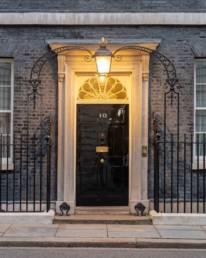If you’ve heard the musical Hamilton, you might remember Aaron Burr’s boast: “I’m a trust fund baby, you can trust me”. While a trust fund baby often suggests someone with a privileged background living off their rich parents, setting up a trust for children is often a sensible way to ensure your wealth is handed down responsibly.
When are trusts used?
Trusts are usually set up where large sums of money are involved, or where relationships between different family members are complicated (such as after divorce and remarriage, and where children and stepchildren are involved). But the primary reason that people set up a trust as part of their estate planning is that they want to leave assets to their children or grandchildren, but want to restrict access until they’ve reached a certain age.
What types of trusts are used for children?
- Bare trusts: A bare trust holds all the assets in the name of the trustee, who looks after the assets until the trust’s beneficiaries reach a certain age (usually 16 or 18). Money placed into a bare trust may be exempt from inheritance tax (IHT) as long as the person making the transfer lives for another seven years after the transfer is made.
- Discretionary trusts: a discretionary trust is often used to provide money for groups of beneficiaries, such as children or grandchildren. The trustee is required to manage the assets and make investment decisions, usually with the aim of growing the wealth for a purpose, such as paying for school fees, university or a house deposit.
An experienced professional will help you to decide which type of trust is right for you and your family
The challenges of setting up trusts
Although setting up a trust gives you much greater control over where your assets will eventually go, it’s worth pointing out some of the inherent challenges.
Choosing the right trustee
One of the first, and most important, decisions you’ll need to make is choosing who to appoint as the trustee. Traditionally, this role is taken up by another, more senior family member, such as an aunt or an uncle. And, as the name suggests, it’s essential that you implicitly trust whoever is appointed to the role to look after the family wealth. Trustees must follow a duty of care towards the beneficiaries of the trust, and act in their best interests.
Today, it’s commonplace to have the family member appointed as a co-trustee alongside a professionally appointed trustee. That way, the family member can call on the professional expertise to help guide any important decisions.
The role of a trustee carries important responsibilities, and shouldn’t be taken lightly
Choosing the right goals
Trusts are usually set up because children have not yet reached an age where they can be considered responsible enough to know what to do with a sudden inheritance. But that could potentially cause hardship and hurt if the rules are too strict, or the beneficiary can’t access their money when they might be in real need of it. While trusts often come with legal restrictions, it’s important to remember that at some point it’s up to the beneficiary to decide how they choose to live their life.
Choosing the right investment strategy
When the trust has been set up to preserve the family’s wealth for future generations, it’s particularly important to set an investment strategy that has clear aims and objectives that reflect the wishes of the trustee. This might be to generate a regular income that can be used to fund school fees or investing for growth with the aim of building up a lump sum for a house deposit.
More and more people consider retirement as the beginning of a new adventure
What’s more, the investment performance should be reviewed at least once a year so that adjustments can be made to keep it on track. Trustees could be liable to court action if the investment is lost due to trustee neglect or mismanagement. It’s therefore important to keep up with the rules impacting how trusts are set up and run, as well as any new legislation that crops up.
Setting up a trust can be complicated, depending on your needs and legacy plans, so it’s worth talking to an experienced professional who can talk you through the process and make sure you get the right trust for your circumstances and objectives. To find out more about trusts and estate planning: book an appointment with an Amber River expert.
Get in touch
To speak to one of our team, arrange an appointment or find out more, call 0800 915 0000, or alternatively use our contact form here.
Disclaimer
The information within this article was correct at the time of publishing, but laws and tax rules are subject to change. Your circumstances and where you live in the UK may also have an impact on your tax treatment.
Related Posts
26 November 2025
Read More

26 March 2025
Read More

9 November 2024
Read More

30 October 2024
Read More

12 May 2024
Read More


